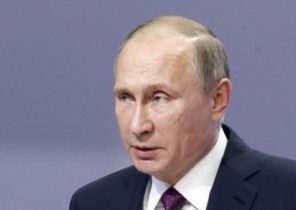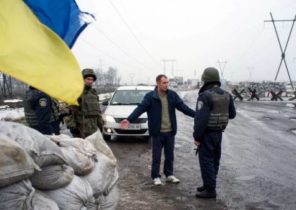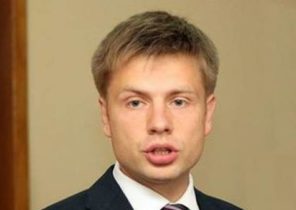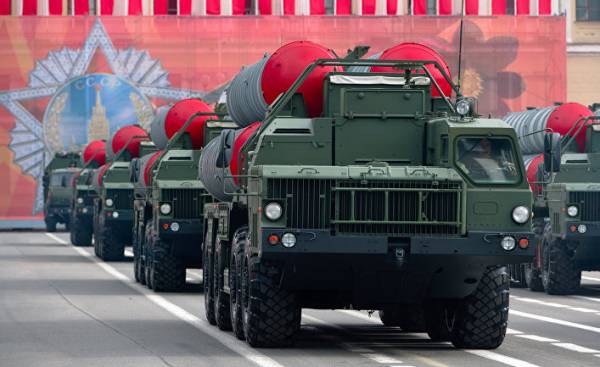
Since 1985, Turkey began to actively invest in the development of military technology, with the aim of developing relevant industries, and also in order to meet the needs of the country in defense.
During the reign of the “Party of justice and development” has been a huge leap in the development of this region. Especially it became appreciable in the past decade, as Turkey has focused on the development of the domestic industry to expand its capacity and enhance its potential. However, when the Turkish authorities realized that, for technical or perhaps financial reasons, the capacity to develop their own military-industrial complex lacks, Ankara chose to enter into an agreement to develop joint products with other partners and countries. If this is not possible, then Turkey was ready to work together to produce goods or to obtain a license for a joint production.
By 2023 Turkey plans to completely abandon the import of military equipment. According to available data, up to 2002, the country imported about 80% of all military equipment. Soon, however, this figure decreased, and at the moment already 50% of its needs in military-technical sphere is provided by domestic production.
Recently most attention was paid to the production of armored vehicles, drones, weapons, helicopters, training aircraft and guided missiles and air defence systems short range. That is why the country was left without air defence systems, long-range, independent from the support of NATO, which negatively affects the protection of its national interests and not allow Turkey to achieve full independence in the field of defense.
Change the security mode
Earlier, Turkey has not experienced an urgent need to receive this system. At that time the situation of the country gave a lot of advantages, especially in military terms. In addition, Ankara has reduced financial costs and tried to save. However, after the collapse of the Soviet Union, the political situation changed, and suddenly there was a rapid change that threaten national security.
All this was accompanied by a decrease in the importance of Turkey for NATO, especially after Ankara refused NATO troops to use its territory to invade Iraq. This was followed by the development of huge missile arsenals on the part of Turkey’s neighbors, especially Iran, Iraq, Syria and Russia.
Turkey sought to create a system of air defense, long-range, that is why a tender was held, which was attended by large military companies from a number of developed countries in the field of defense industry, namely:
• United States: the defense system Patriot of Lockheed Martin Corporation and Raytheon.
• China: defense system FD-200 — a modified version of the Chinese system of HQ-9.
• European coalition (Italy and France): the defense system Aster-30 submitted by the company Eurosam.
• Russia: the defense system s-300 from the company Rosoboronexport.
26 Sep 2012 the Executive Committee of Turkey’s defense industry (SSIK), headed by the then Prime Minister Recep Tayyip Erdogan, announced that the Chinese company CPMIEC had won the tender on the basis that proposed the creation of a missile defense system in 3,44 billion US dollars.
However, this transaction was strongly criticized NATO and the United States. The Turkish side tried to improve the proposals of the American and European companies, using the Chinese offer, however, this step was not successful. All these events were accompanied by fluctuations in the security and political commitment of NATO to Turkey, especially after the aggravation of the Syrian crisis, and the failure to protect Turkey from Russia. This is what forced Ankara to cancel the tenders, but not the project itself.
Serious negotiations or maneuver?
Since the restoration of relations between Russia and Turkey in 2016 again began to talk about the project to ensure the country’s missile defense system, long-range. This time the Turkish side began negotiations with Russian defense companies. After the growing tension in relations between Ankara and the Obama administration and the European Union at the end of 2016, it became clear that the joint Russian-Turkish meeting of the Ministerial Commission will discuss the issue of supply Ankara missile defense system the Russian s-400. In March 2017, defense Minister of Turkey Fikri Ishik said that the negotiations on this issue between official representatives of two countries are in the final stage. Some sources have indicated that this issue will be discussed during the visit of President Erdogan to Russia, which was made a few days ago. However, in the final statement of the two leaders, there is no reference on the subject. That is why it caused a lot of suspicion and debate about the seriousness of this issue. Whether Moscow will sell the pride of his defensive sector With 400 Ankara, or whether the issue is nothing more than a distraction?
Optimists claim that the intention of the parties quite serious, and that Turkey needs such a defensive system. Moreover, it is an opportunity for the Russian side, both in terms of strengthening political relations with Turkey, and from the point of view of strengthening its strategic position. This deal. of course, it will benefit Moscow’s plan for the neutralization and/or distancing of Ankara from USA, Europe and NATO. Moreover, Russia will have the opportunity to open new and unprecedented markets for the war industry.
Turkey really works hard to make a new push for independence in the defense industry. This is especially noticeable in recent years, when Ankara began to produce weapons for aviation, land and marine forces. However, Turkey can achieve its goals without an independent air defence system. Given the fact that NATO’s position has not once hesitated to say that in this context, the tendency to Moscow seems quite logical.
Optimists also argue that the recent rapprochement between Turkey and Russia especially in the sphere of the relations of strategic projects related to the transportation of oil, gas or nuclear power plant “Akkuyu”, is an indication that Moscow is unlikely to take such a step. However, everything will be easier if Russia will provide the Turkish side credits for the transaction.
Obstacles to the transaction
There is an opposite opinion. Some believe that it is difficult to accept even the idea that Moscow would sell the defense system s-400 to Turkey, especially because she is a member of NATO. Moreover, it is absurd to say that selling this type of system is possible only in order to improve and to raise political relations to the level strategic partnership. Because, of course, these types of transactions occur only between strategic partners, and Ankara, in turn, has not yet reached the same level of relations with Moscow, especially given the fact that Russia did not sell this system to anybody, except China. In addition, the main advantage of this type of weapon is to fight with opponents from the air, whether it is a strategic aircraft, bombers, fighters, and ballistic or cruise missiles or any other weapons that may endanger national security of Turkey. It should be emphasized that any danger for Ankara can come from countries using directly or indirectly the weapon of Russia.
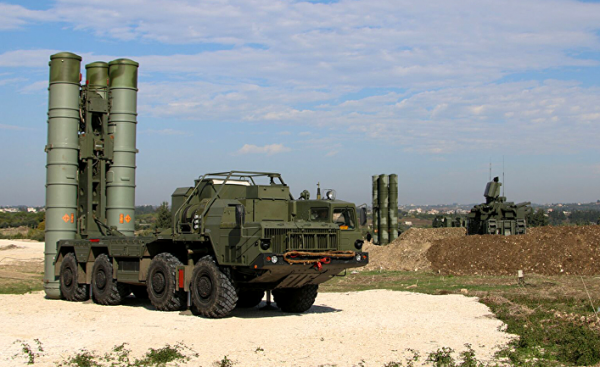 © Ministry of defence Resnicno-missile systems s-400 Russian air base Hamim, Syria
© Ministry of defence Resnicno-missile systems s-400 Russian air base Hamim, Syria
In other words, ballistic missiles that could threaten Turkey’s national security, mostly allies of Russia in the region (Iran, Syria, and even before Iraq). Moreover, groups that can use this system or have knowledge concerning its operation, are connected and adhere to the sides of these friendly to the Russian countries.
Even if we assume that Moscow has decided to sell the defense system of Turkey, then surely the latter will not have to implement it into NATO. There are those who believe that Turkey will not spend a lot of resources on several different incompatible systems. After all, the goal is to purchase several systems for the protection of certain areas of strategic importance.
In addition, the sale of such system to the member States of NATO is always associated with risk informing this group about the technology and possible testing of these weapons in practice. Therefore, it is believed that Moscow will not agree to transfer the s-400, Turkey.
In any case, it is obvious that at present, Turkey is in dire need of an independent missile defense system, long-range. The Turkish leadership is aware of the importance of the issue, especially because of the growing cross-border risks to national security, as well as competition between regional and national forces in neighbouring countries. In addition, the almost complete dependence on NATO’s support is a huge barrier to maintain its national security and protection of regional interests of the country.



